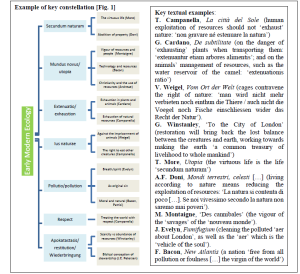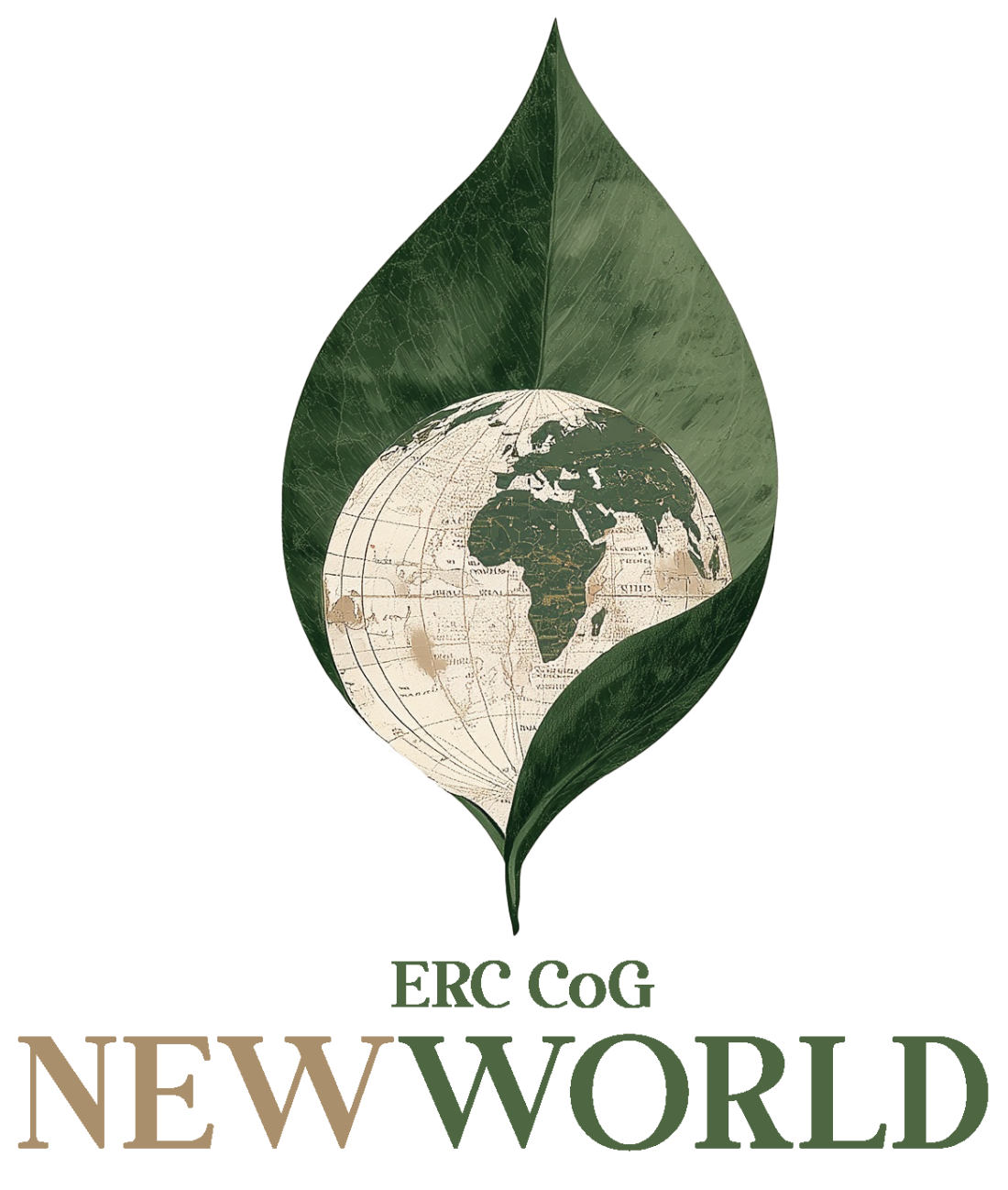
Philosophical interest in the environment is booming. Yet, the history philosophy has so far remained largely silent: NEWWORLD claims that this is due to fear of anachronism, a reticence about employing contemporary terms to approach historical texts. Early modernity has been particularly affected because key terms now (ecology, sustainability) did not exist then.
This project uses the methodology of controlled anachronisms to allow the history of philosophy to join the environmental humanities. NEWWORLD employs anachronisms as efficient heuristic tools for extracting data from historical texts and connecting them to present day interests and concerns. By developing terminological constellations, the team will chart conceptual continuities and ruptures over time (Fig. 1 provides an example of a simplified constellation). The constellations at the centre of NEWWORLD feature selected terms which function as a conceptual bridge for constructing a philosophical narrative of how ecological thought has evolved.
NEWWORLD investigates four objectives:
I. To study conceptions of the environment: what did it mean, in the early modern period, to care for that which ‘surrounds’ or ‘environs’ human life? Our task will be to compare early modern notions with present-day tendencies to view the environment as a passive backdrop to human action.
II. To analyse the conceptual dynamics of pollution, rediscovering the theological, physiological and cosmological facets of the early modern notion, and acknowledging that ‘pollution’ entails an idea of porosity between individuals and environments, real and imagined.
III. To understand views of ecological justice: here the project posits that religion and environmental care were frequently allied in early modernity. This Objective brings attention to environmental ideas involving the active engagement of Christian philosophers in shaping the present and the future of human life in a changing natural world.
IV. To identify early modern ideas of sustainability, which will emerge from our interpretation of early modern utopian literature as a laboratory of ecological concern, demonstrating that early modern philosophers constructed complex theoretical scenarios in order to evaluate sustainability as a future-oriented goal.

